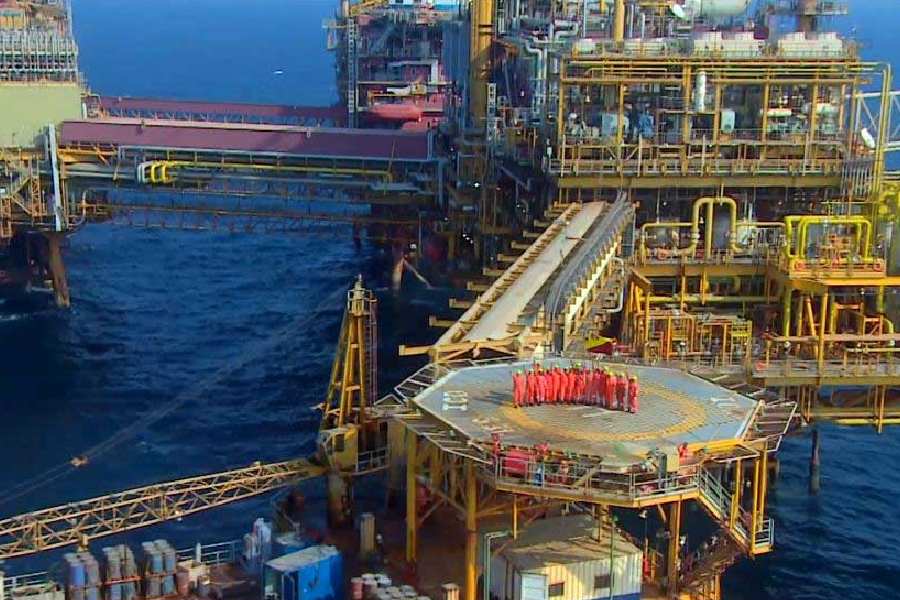State-owned Oil and Natural Gas Corporation (ONGC) has made two significant back-to-back natural gas discoveries in a Mahanadi basin deepwater block in the Bay of Bengal as its calculated game plan of venturing into high-risk deep water exploration starts yielding results.
The firm made the discoveries in the block MN-DWHP-2018/1, which it had won in the third round of auction under the open acreage licensing policy in 2019, two sources with direct knowledge of the development said.
Significantly, the discoveries have been made in an area, which previously was classified as a 'no-go' area because of national security interests.
The first discovery, named Uktal, is in 714 metres of water depth and flowed more than 3 lakh cubic metres per day of gas during initial testing, they said, adding the other find is at a water depth of 1,110 metres.
ONGC has notified the discoveries to upstream regulator Directorate General of Hydrocarbons (DGH) and is now doing pool size and commercial viability assessments, they said.
For a nation that imports roughly half of its gas needs, finding new reserves augurs well for its energy security. India is targeting raising the share of natural gas in its energy basket to 15 per cent by 2030 from the current 6.3 per cent and more domestic production will aid that.
Gas is being seen as a transition fuel in India's journey towards net zero carbon emission by 2070. As the country pivots away from polluting fossil fuels, natural gas with a lower carbon footprint is seen as a bridge fuel.
Natural gas extracted from below ground or sea-surface is used to generate electricity, make fertilisers or turn into CNG to use as fuel in automobiles and piped to household kitchens for cooking purposes. Greater use of natural gas will replace coal in power generation and liquid fuels in industries.
Sources said ONGC was able to fast-track exploration after the government freed almost one lakh square kilometres of area from restrictions for exploring and producing oil and gas.
This area was called a 'no-go' area as it was either in the path of missile testing or on a satellite launch route. Restrictions on more than 98 per cent of the 'no-go' areas were removed in 2022, allowing for energy companies to send vessels and drillships to find oil and gas.
ONGC acquired 1,432.14 sq km of 3D seismic data in MN-DWHP-2018/1 block (Mahanadi deep-water) and spud well MNDW181H-B-1 in August last year.
The first of its kind under the open acreage licensing policy (OALP) regime, the well has been drilled by the mighty drillship West Polaris.
Sources said these exploration successes in Mahanadi offshore will catalyse opening up new exploration fronts, attracting more investments.
ONGC had last year inked a memorandum of understanding (MoU) with French energy giant TotalEnergies to establish a framework for the exchange of information on deepwater offshore acreage, especially in the Mahanadi and Andaman basins. This was to enable Total to make a decision on participating in ONGC acreage, bringing its superior technical strengths in deepwater exploration and production.
The firm had previously signed heads of agreement with ExxonMobil for deepwater exploration on the country's east and west coasts. The tie-up with Exxon focuses on the Krishna Godavari and Cauvery basins in the eastern offshore region and the Kutch-Mumbai region in the western offshore area.
The exploration success in the Mahanadi basin will help catalyse the global giants to make an investment decision, sources added.
Except for the headline, this story has not been edited by The Telegraph Online staff and has been published from a syndicated feed.











